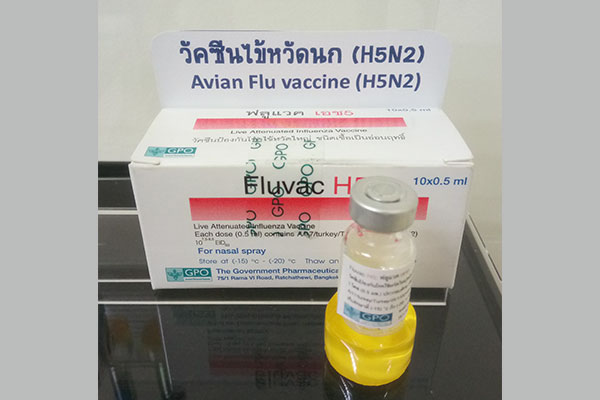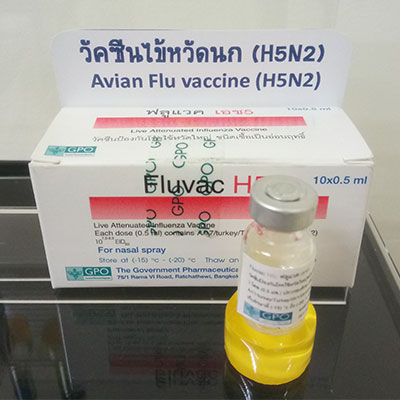FINDINGS : Between Feb 4, 2013, and Feb 28, 2013, 256 individuals were screened, of whom 152 participants were enrolled in part 1 of this study. LAIV H5N2 vaccine was well tolerated. Viral shedding was detected in only six (6%) of 101 participants in the vaccine group 1 day after the first vaccination and in and two (2%) of 98 participants in the group after the second vaccination. There was no serious adverse event in both groups. 51 (50%) of 101 participants in the vaccine group and 28 (55%) of 51 in the placebo group reported at least one adverse event. 80 (84%) of 95 events in the vaccine group and 32 (78%) of 43 events in the placebo groups were reportedly suspected adverse events, probably related to the vaccine; however, most were mild in nature. After two doses of vaccine, 13 (13%) of 100 participants in the vaccine group had an increase in haemagglutination-inhibition titre of more than four-fold and four (4%) of 100 vaccinees developed a rise in neutralisng antibody titre of more than four-fold. 1 year later, after a booster with an inactivated H5N1 vaccine (part 2), 39 (98%) of 40 participants who had previously been vaccinated with LAIV H5N2 had an increase in haemagglutination-inhibition titre of greater than four-fold as early as day 7 compared with three (15%) of 20 participants in the placebo group. Peak geometric mean titre (GMT) for haemagglutination-inhibition antibodies in the previously LAIV H5N2 vaccinated group (566·89 [95% CI 436·97-735·44]) were significantly higher than among those who previously received placebo (25·49 [11·82-54·96]; p<0·0001). The peak GMT by neutralising antibody assay in the H5N2 vaccinated group (1395·85 [1040·79-1872·03]) was also significantly higher than that observed in the placebo group (17·41 [9·05-33·48]; p<0·0001). Importantly, higher cross-reactive haemagglutination-inhibition antibody titres against H5N1 (clades 1, 2.1.3.2, and 2.3.4) were detected in the LAIV H5N2 experienced group than the naive group (p<0·0001).
INTERPRETATION : Our data suggest that LAIV vaccination induces long-lasting memory immune responses. The limitation of this study was that part 2 was designed as a proof-of-concept study by contrast with part 1.




